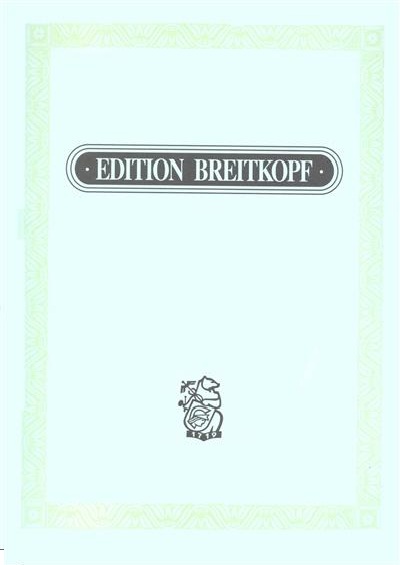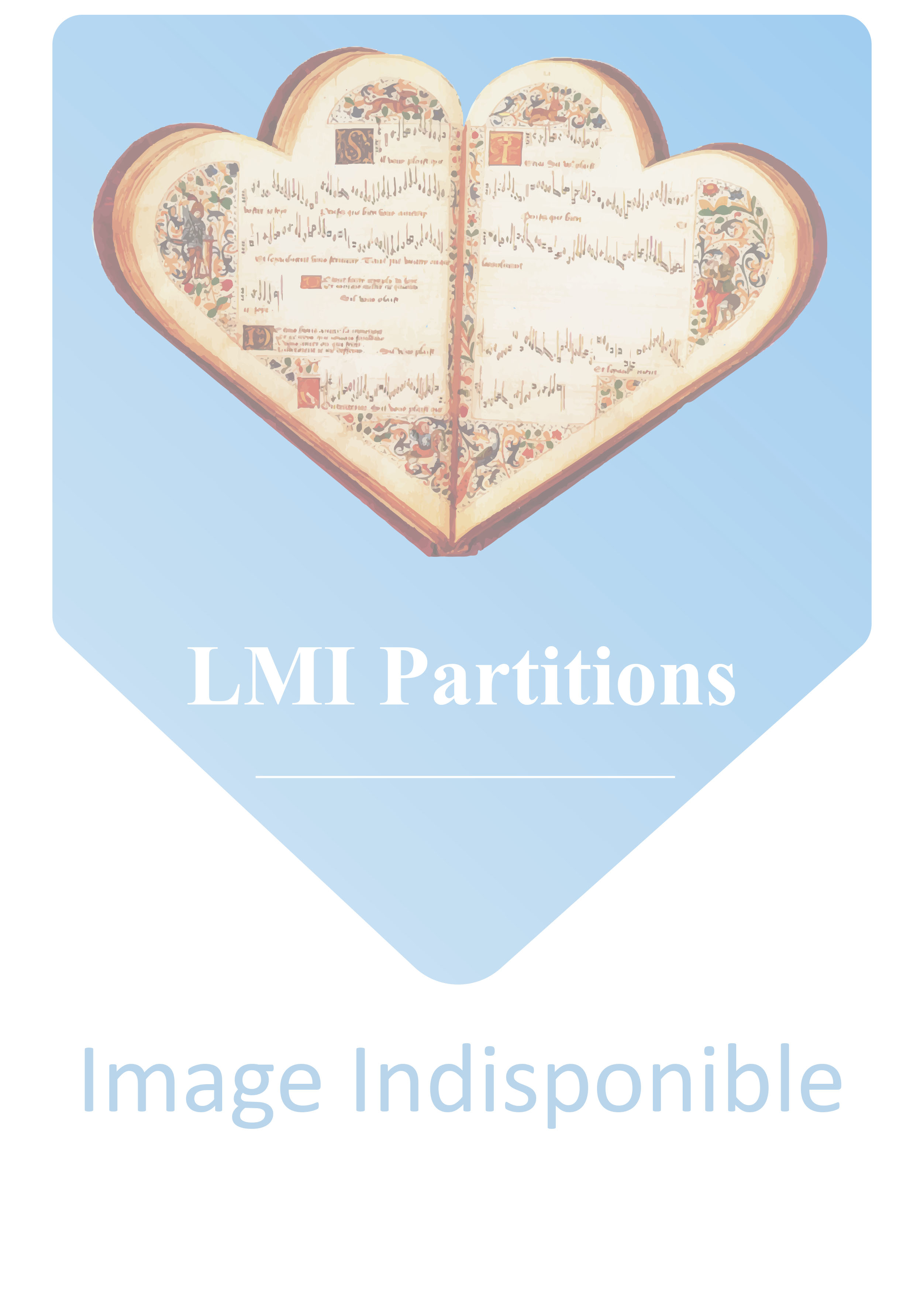Sacred Choral Music Swv 369-380 SCHUTZ HEINRICH
Choeur Mixte et Basse Continue
Classique
Contenu
Vorwort
Preface
Vorrede im Stimmbuch "Bassus Continuus"
Composer / Author: Schütz, Heinrich
1 Es wird das Zepter von Juda nichts entwendet werden SWV 369
Prima pars
Composer / Author: Schütz, Heinrich
2 Er wird sein Kleid in Wein waschen SWV 370
Secunda pars
Composer / Author: Schütz, Heinrich
3 Es ist erschienen die heilsame Gnade Gottes SWV 371
Composer / Author: Schütz, Heinrich
4 Verleih uns Frieden genädiglich SWV 372
Prima pars
Composer / Author: Schütz, Heinrich
5 Gib unsern Fürsten und aller Obrigkeit SWV 373
Secunda pars
Composer / Author: Schütz, Heinrich
6 Unser keiner lebet ihm selber SWV 374
Composer / Author: Schütz, Heinrich
7 Viel werden kommen von Morgen und von Abend SWV 375
Composer / Author: Schütz, Heinrich
8 Sammlet zuvor das Unkraut SWV 376
Composer / Author: Schütz, Heinrich
9 Herr, auf dich traue ich SWV 377
Composer / Author: Schütz, Heinrich
10 Die mit Tränen säen, werden mit Freuden ernten SWV 378
Composer / Author: Schütz, Heinrich
11 So fahr ich hin zu Jesu Christ SWV 379
Composer / Author: Schütz, Heinrich
12 Also hat Gott die Welt geliebt SWV 380
Description :
In 1648 Heinrich Schütz published a collection of 29 motets with five to seven parts titled "Geistliche Chor-Music” (Sacred Choir Music). Here, the term "Chor” (choir) refers not only to a (large) vocal ensemble but, more generally, to a group of musicians, vocal or instrumental. As explained by Schütz in the foreword he published with the collection, all parts of the motets can be performed vocally and/or instrumentally.
This practice, common in Schütz's time, has been incorporated into Bärenreiter's new publication. The edition includes the twelve five-part motets at original pitch with basso continuo. In addition, instrumental parts for string and wind instruments can be purchased. These parts, which include the text, serve to support and complement the choral sound "colla parte”. To enable varying tone-colour possibilities, instrumental parts are available in different transpositions.
Of great significance is the detailed foreword on performance practice by Manfred Cordes.
- Reflects the latest in musicological research based on the "New Schütz Edition”
- Includes a detailed foreword (Eng/Ger) on performance practice by a Schütz expert
- Instrumental parts (strings, winds) available in transpositions
Manfred Cordes is a specialist for the music of the 16th and early 17th centuries. He works as professor for music theory, counterpoint and ensemble and is also rector of the "Hochschule für Künste Bremen”. He performs internationally as the director of the ensemble "Weser-Renaissance Bremen”.






 Gagnez un bon d'achat dès 50€
Gagnez un bon d'achat dès 50€
 30 jours pour changer d'avis
30 jours pour changer d'avis




